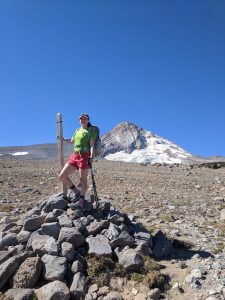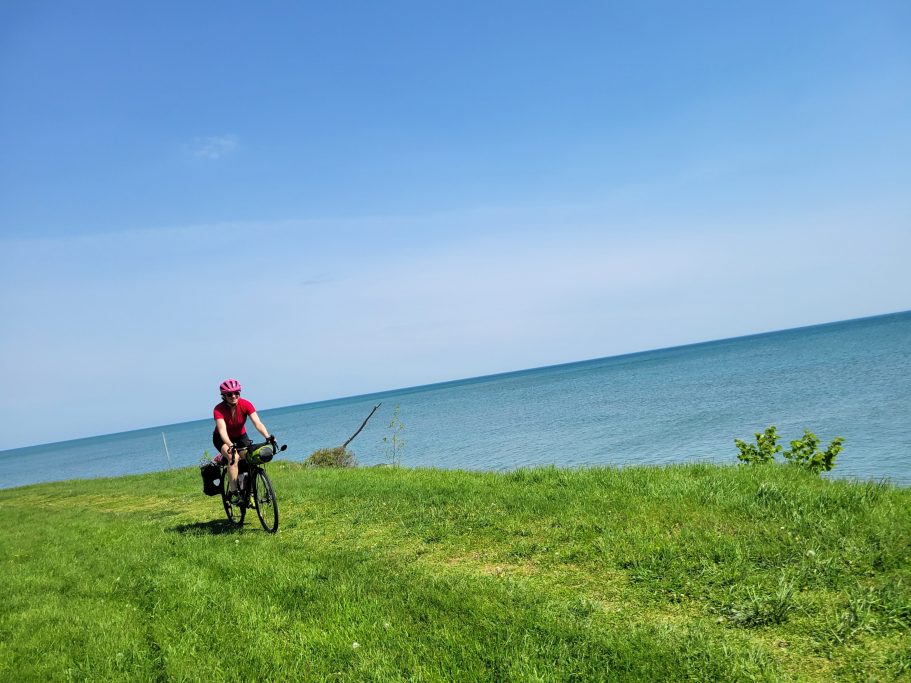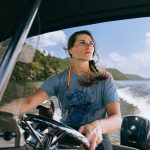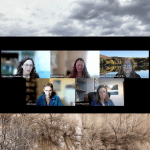Erin Kanzig
After growing up in Oregon, Erin Kanzig (she/her) now lives and works in Detroit, Michigan, on the lands of Anishinaabe nations of the Ojibwe, Ottawa, and Potawatomi, and Wyandot.
Erin joined River Network in 2021. Erin dives into state and federal policies and shares them with the network through the State Policy Hub, policy showcases and peer learning opportunities, and publishing updates and toolkits. Erin earned her Bachelor of Arts in Environmental Studies and Sociology from Whitman College. She moved to Detroit, MI, post-college, working at a homeless shelter for young women and children. After working across a range of jobs- from baker to early childhood educator- she returned to Oregon to obtain a Master of Public Policy degree from Oregon State University, focusing on environmental policy. Prior to joining River Network she volunteered with the University of Oxford’s Covid-19 Government Response Tracker, conducted research on energy use, reliability, and affordability in Michigan, and served as a fellow at the Oregon Watershed Enhancement Board.
Outside of work, Erin is often found biking gravel roads through farmland and forests, doting on her pets, embroidering original art, and finding opportunities to jump into cold bodies of water.
Which River Network value most speaks to you?

Backpacking around Mt. Hood in Oregon.
Integrity. Holding ourselves accountable to each other and to our network and the broader public is crucial, being open about what we know, do well, and where we can make change, and being honest about our limits, areas of growth, and barriers. I want to accomplish our work with transparency, enthusiasm, and humility.
What called you to work in water?
Water is life. There are a LOT of water-related crises in my adopted state of Michigan, and I went back to school to figure out how I could influence policy to address some of these crises. Working at River Network has opened up so many opportunities for me to partner with other amazing organizations and individuals who are at the forefront of ensuring our communities (human and beyond) can access healthy and safe water.
Why is equity, diversity, and inclusion (EDI) important in your work?
Policies and regulations reflect choices and priorities of those in power, and we have historic and ongoing work to do to reshape how low-income communities and communities of color are impacted by water policies and other environmental and economic policies that leave their health, livelihoods, and neighborhoods at risk. Both internally through organizational practices and externally through how we support and target our energy, infusing equity, diversity, inclusion, and justice principles into my work helps ground my hope that another world is possible.
If you didn’t work in water or conservation, what would you be doing?
Two dreams in my back pocket are to become a children’s book illustrator or to develop wood working skills and build beautiful furniture for a living… Or open up a bed and breakfast. Or run a super sweet little bakery. There’s so many things to potentially do in one life!
How do you recharge outside of work?
I recharge by slowing down to cook and bake and create art with my hands or speeding up (at least somewhat) to train for long distance running, biking, and Nordic skiing.

Bike touring along Lake Huron in spring of 2022.







